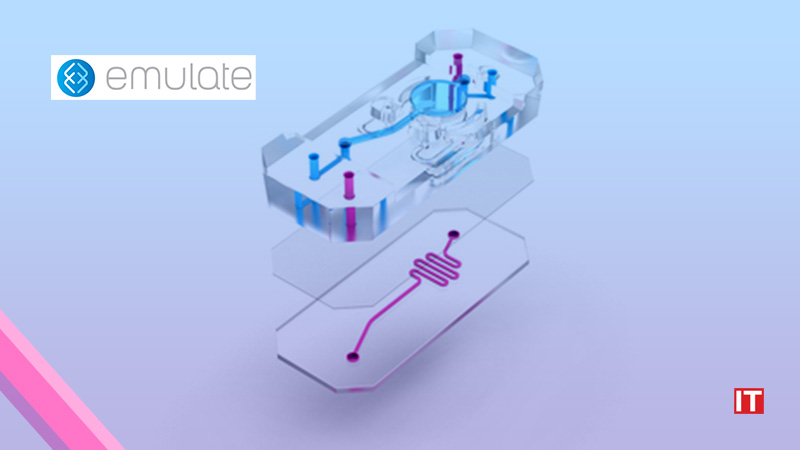Emulate, Inc., the leading provider of next-generation in vitro models, announced the launch of the Emulate Chip-A1 Accessible Chip through an early access program. This new Organ-Chip design expands on the original Chip-S1—which models tissue-vascular interfaces with relevant biomechanical forces such as stretch and flow—by allowing users to create thicker tissues within the epithelial culture chamber and apply additional drug treatment options, including topical or aerosolized applications.
Chip-A1 allows researchers to model complex 3D tissues by incorporating gels up to 3 mm thick within the Chip-A1’s accessible culture chamber, integrating stroma into the epithelial layer, creating stratified epithelia, and applying organ-specific biomechanical forces. Further complexity and human relevance can be achieved with Chip-A1 by incorporating circulating immune cells or bacteria. With these features, Chip-A1 offers improved in vitro modeling capabilities for research areas such as cancer and cosmetics, which require enhanced 3D models and more direct compound dosing options.
“From the beginning, our vision has been to enable more human-relevant research with Organ-on-a-Chip technology,” said Josiah Sliz, Vice President of Platform Development at Emulate. “Chip-A1 allows users to more effectively model complex epithelial-stromal interactions with vasculature and circulating immune cells. With these capabilities, researchers have a new approach to unraveling complex diseases lacking effective therapeutics, including disorders of the skin and cancer.”
Also Read: Arcellx Announces Clinical Hold for its iMMagine-1 Phase 2 Clinical Program
Oncology drug candidates are currently the least likely type of therapeutic to succeed in clinical trials, with only 5.1% of Phase I candidates going on to receive FDA approval. Better oncology therapeutics are desperately needed, as more than 10 million people globally are expected to die of cancer this year, according to the World Health Organization. Understanding a tumor’s microenvironment is key to regulating cancer progression and developing more effective therapies—and Chip-A1 will give researchers this capability.
In their online article titled ‘Epithelial-Stromal Interactions in Barrett’s Esophagus Modeled in Human Organ Chips,” researchers from the Wyss Institute for Biologically Inspired Engineering at Harvard University used a prototype of Chip-A1 and found that it offered a new approach for studying epithelial-stromal interactions and broader underlying mechanisms associated with esophageal cancer progression.
“This is the first time, to our knowledge, that it has been possible to study epithelial-stromal interactions and carry out heterogeneous tissue recombinants using cells isolated from the same patient in vitro,” said senior author Donald Ingber, MD, PhD, Founding Director of the Wyss Institute. “Moreover, the ability to create patient-specific cancer models and understand how those cancer cells interact with their surrounding environment brings us closer to delivering on the promise of personalized medicine.”
SOURCE: Businesswire


































